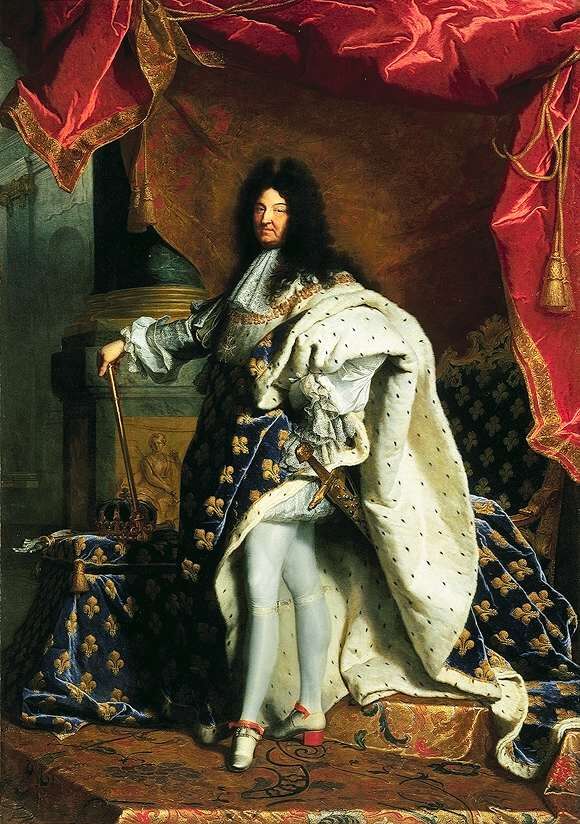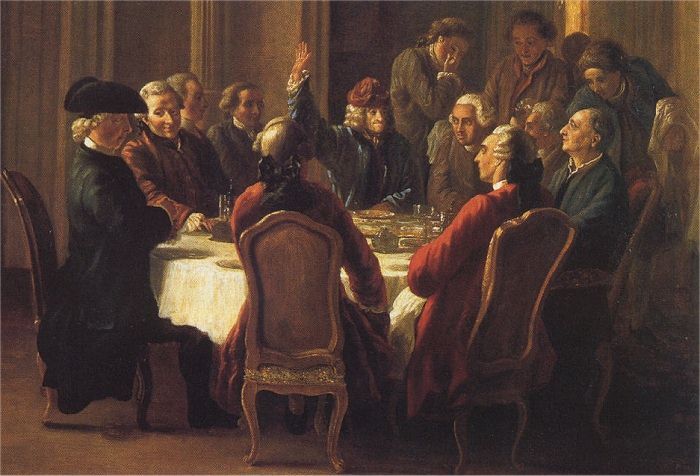Les notions abordées dans cette fiche dépassent celles qui sont vues au secondaire. Il s'agit ici d'un complément pour ceux qui sont curieux d'en savoir plus.
Why was the 18th century called the Age of Enlightenment?
This century was marked by a very strong philosophical rationalism. On the one hand, philosophy was flourishing. A number of highly influential philosophers were developing ideas based on reason. These philosophers were inspired in part by Kant and Descartes. The 18th century also saw the emergence and exaltation of the sciences. Throughout the century, therefore, science and philosophy dominated.
The term Enlightenment was already being used by writers of the time, who were convinced that the century represented the dawn of a new era illuminated by reason, science and respect for humanity. Similar expressions were used throughout Europe: in France, England, Germany and Italy.
In France, the Enlightenment is the period following the reign of Louis XIV. He ruled France alone for several decades. He controlled the arts, literature, wars and politics. Following the principle of absolute monarchy, Louis XIV was the sole decision-maker.

Louis XIV
At the end of his reign, philosophers wanted to rethink the notions of Man, society and individual rights. They wanted to develop ideas that would influence the structure of society while contributing to the happiness of each individual.
In an absolute monarchy, only the king has power. He holds all three types of power: judicial, legislative and executive. The king is seen as God's representative on earth, enjoying what is known as the divine right to rule. He therefore rules the country as he pleases, with two main mandates: to maintain order in the kingdom and to ensure that trade flourishes.
England has seen two great revolutions. The first was radical and bloody, while the second was more moderate. It was the latter revolution that laid the foundations for the temperate political system that the Enlightenment philosophers were to use as a model. As well as changing the country's political structure, the English also drew up a Bill of Rights. This limited the power of kings in the name of individual rights. The English government now recognised individual freedom, freedom of thought and freedom of the press. In addition, kings were obliged to govern with parliament. After a few years, the power of Parliament increased while that of the kings tended to decrease. It could be said that England had a limited parliamentary monarchy.
The Enlightenment movement began with a wave of demands, particularly from the bourgeoisie. The bourgeoisie demanded the right to rule and to hold a share of power. These demands led to a rethink of absolute monarchy.
These demands also led to a desire to combat social inequality and religious intolerance. According to the new philosophy, every citizen could choose his or her religion. The philosophy of Enlightenment was born of a need for change and innovation.
Enlightenment philosophy is first and foremost a way of thinking, an attitude that questions everything and explores new ideas. It was this philosophy in particular that led to the French Revolution.
All Enlightenment thinkers emphasised the power of human reason and the power of progress. By progress, the philosophers mean progress in knowledge, progress in technology and progress in morality.

A philosophers' dinner
Contrary to the beliefs of earlier philosophies, according to these Enlightenment philosophers, knowledge is not innate. Knowledge comes from experience. Education, by providing access to knowledge, had the power to make people better and improve human nature.
The philosophers of the Enlightenment set out in search of truth. This truth was not to be found in attested and sacred sources such as the texts of Aristotle, Plato or the Bible. This quest will help to keep people away from prejudice and intolerance, while encouraging their ascent towards knowledge and happiness.
As far as religion was concerned, philosophers generally believed in God while rejecting Christian theology, dogma and institutions. They attack the Church, its wealth, its power and its desire to hinder freedom.